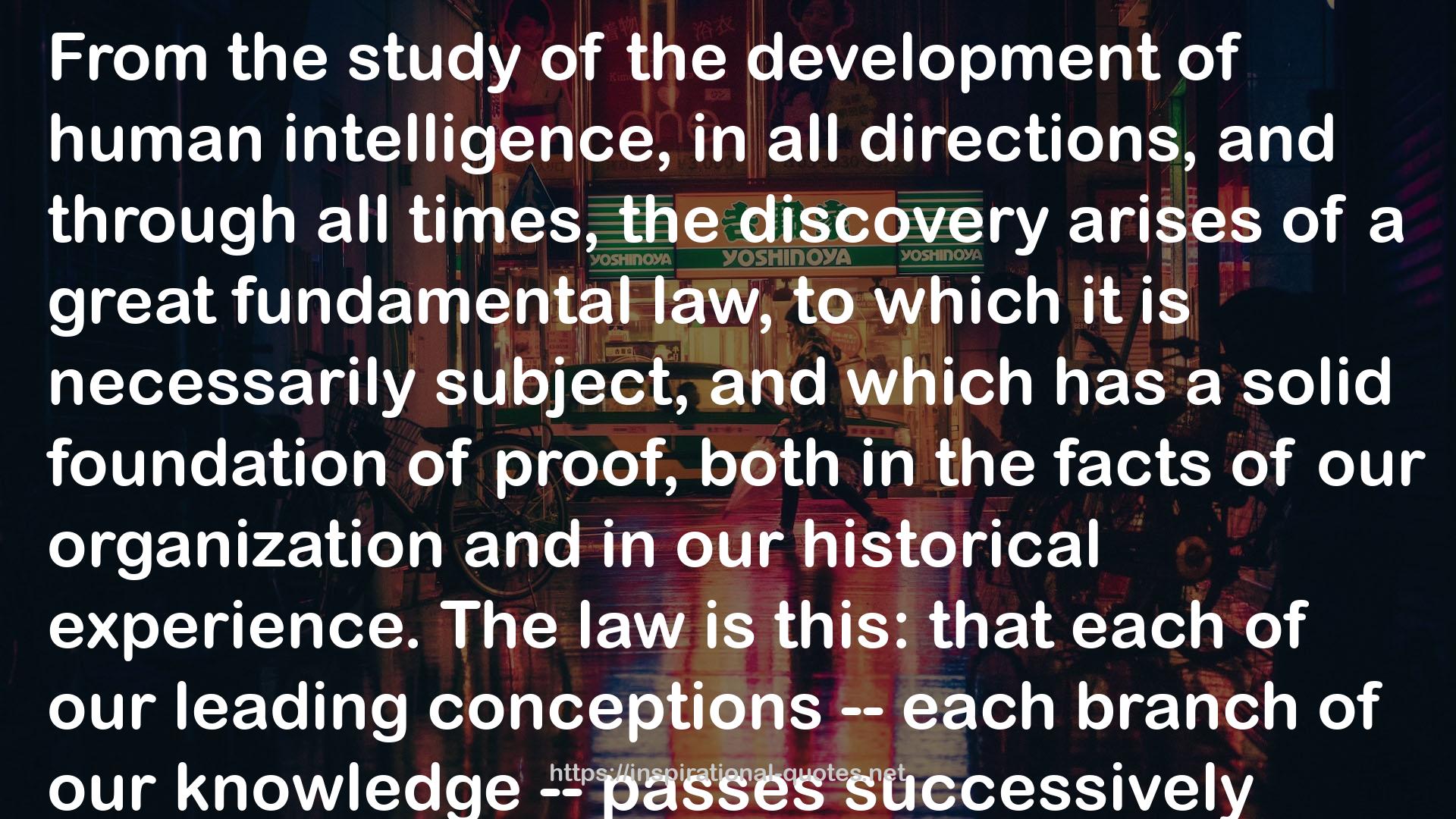" From the study of the development of human intelligence, in all directions, and through all times, the discovery arises of a great fundamental law, to which it is necessarily subject, and which has a solid foundation of proof, both in the facts of our organization and in our historical experience. The law is this: that each of our leading conceptions -- each branch of our knowledge -- passes successively through three different theoretical conditions: the theological, or fictitious; the metaphysical, or abstract; and the scientific, or positive. In other words, the human mind, by its nature, employs in its progress three methods of philosophizing, the character of which is essentially different, and even radically opposed: namely, the theological method, the metaphysical, and the positive. Hence arise three philosophies, or general systems of conceptions on the aggregate of phenomena, each of which excludes the others. The first is the necessary point of departure of the human understanding, and the third is its fixed and definitive state. The second is merely a state of transition. "
― Auguste Comte , Cours de philosophie positive 1/6 (French Edition)
